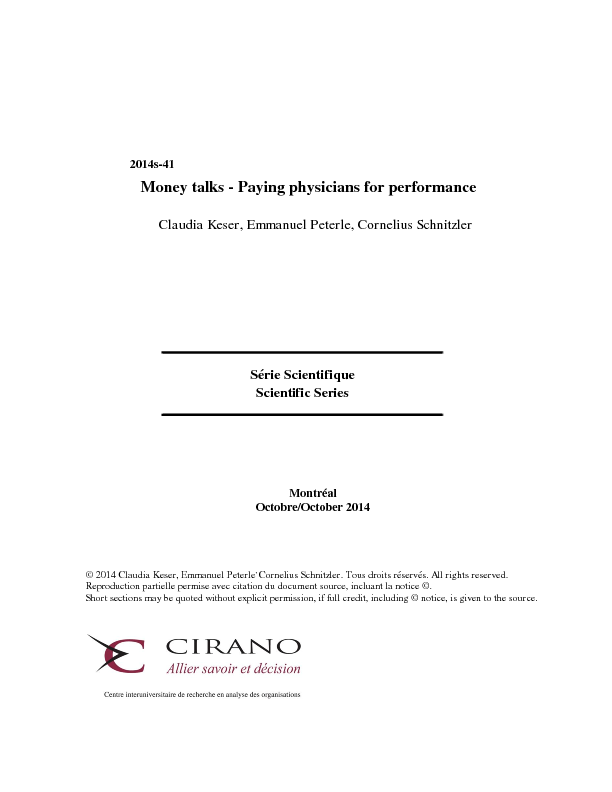Money talks - Paying physicians for performance
Pay-for-performance attempts to tie physician payment to quality of care. In a controlled laboratory experiment, we investigate the effect of pay-for-performance on physician provision behavior and patient benefit. For that purpose, we compare a traditional fee-for-service payment system to a hybrid system that blends fee-for-service and pay-for-performance incentives. Physicians are found to respond to pay-for-performance incentives. Approximately 89 percent of the participants qualify for a pay-for-performance bonus payment in the experiment. It follows that a patient treated under the hybrid payment system is significantly more likely to receive optimal treatment than a similar fee-for-service patient. Pay-for-performance generally tends to alleviate over- and under-provision of medical treatment relative to fee-for-service. Irrespective of the payment system, we observe unethical treatment behavior, i.e., the provision of medical services with zero benefit to the patient.
[ - ]




